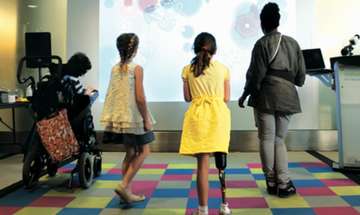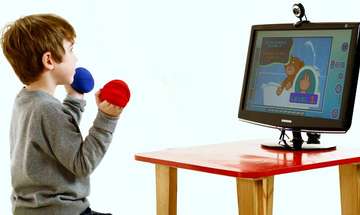Study Reveals Nintendo Wii's Benefits in Stroke Rehabilitation
 images: LANCESTER UNIVERSITY FACEBOOK, GIZMAG.COM
images: LANCESTER UNIVERSITY FACEBOOK, GIZMAG.COM Nintendo Wii was revealed to have a significant positive effect in stroke rehabilitation in a new study conducted at Lancaster University.
A new study has demonstrated that stroke patients can have significant improvement in arm movements after using Nintendo's Wii video game console as part of their rehabilitation program. The popular game console can be adapted to address the specific needs of physical therapy and be used by patients at home, according to a new research conducted at Lancaster University, a public research university in Lancaster, the UK.

The 15-month Wii rehabilitation research was led by Dr. Emmanuel Tsekleves and conducted at five National Health Service (NHS) sites. The stroke patients who participated in the preliminary study used the Wii game console to improve their arm movements. They played specially adapted games that challenged them to hit randomly appearing balls, play air hockey, and imitate a 3D avatar by mimicking movement patterns for the shoulder, elbow and forearm. They were able to see the progress they had made by watching their movements reflected on the screen.

Stroke patients playing Wii games improved their arm movements significantly and showed a threefold increase in their ability to pick up and put pegs in holes. One of the study participants could even lift and drain a cooking pan, which was something she hadn't been able to do since her stroke 11 years earlier.


There are approximately 110,000 new strokes in the UK every year and more than a third of the people affected suffer from long term disability as a result. Seven out of ten stroke survivors lose the full use of their arm and only a fifth of these regain it.
Dr. Tsekleves and his team found that adapted Wii games have the potential to enhance community-based stroke rehabilitation and improve arm movement by providing the patients with a motivating, inexpensive way of exercising. The rehabilitation could be monitored remotely and therapeutic exercises adjusted by physical therapists as required. The games could be customised in terms of feedback, scoring, speed, duration and movement. There are currently plans to extend the existing study, which was published in Disability and Rehabilitation.


 SEND INQUIRY
SEND INQUIRY








